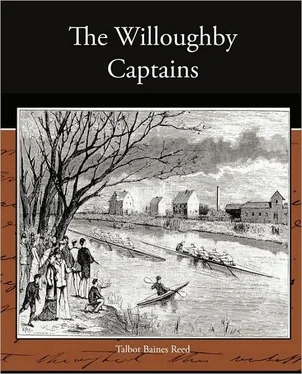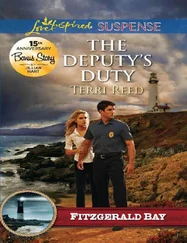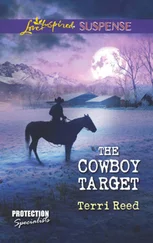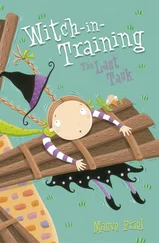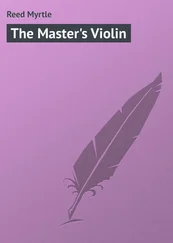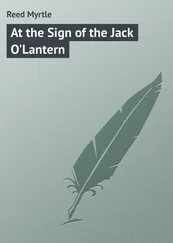Bloomfield and Riddell groaned inwardly for their comrade. They had seen what was coming, and had marked his rash approach to the mouth of the volcano with growing apprehension. They had been helpless to hold him back, and now his turn was come — he had met his fate.
So, at least, they imagined. What, then, was their amazement when he turned not a hair at the question, but replied, stirring his tea complacently as he did so, “You see, each of the Rockshire men may have been a good cricketer, and yet if they had not been used to playing together, as our fellows have been, we should have a decided pull on them.”
Miss Stringer regarded the speaker critically. She had not been used to have her problems so readily answered, and appeared to discover a suspicion of rudeness in the boy’s speech which called for a set-down.
“I do not understand what you mean by a ‘pull,’ Mr Fairbairn,” said she, sternly.
“Why,” replied Fairbairn, who was really interested in the subject, and quite pleased to be drawn out on so congenial a topic, “it’s almost as important to get to know the play of your own men as to know the play of your opponents. For instance, when we all know Bloomfield’s balls break a bit to the off, we generally know whereabouts in the field to expect them if they are taken; and when Porter goes on with slows every one knows to stand in close and look out for catches.”
“Yes,” said Bloomfield, gaining sudden courage by the example of his comrade, “that’s just where Rockshire were weak. They were always shifting about their field and bowlers. I’m certain they had scarcely played together once.”
“And,” added Riddell, also taking heart of grace, and entering into the humour of the situation—“and they seemed to save up their good bowlers for the end, instead of beginning with them. All our hitting men got the easy bowling, and the others, who were never expected to score in any case, were put out by the good.”
“In this respect, you see,” continued Fairbairn, addressing Miss Stringer, “a school eleven always get the pull of a scratch team.”
Miss Stringer, who during this conversation had been growing manifestly uncomfortable, vouchsafed no reply, but, turning to her sister, said, with marked formality, “My dear, were the Browns at home when you called this afternoon?”
“I regret to say they were out,” replied Mrs Patrick, with a withering glance round the table.
“Of course, it depends, too,” said Bloomfield, replying to Fairbairn’s last question and giving him an imperceptible sly kick under the table, “on whether it’s early or late in the season. If we were to play them in August they would know their own play as well as we know ours.”
“Only,” chimed in Riddell, “these county teams don’t stick to the same elevens as regularly as a school does.”
“My dear, have you done your tea?” inquired Mrs Patrick’s voice across the table.
“Yes. Shall I ring?” said the doctor.
“Allow me,” said Fairbairn, rising hastily, and nearly knocking over Miss Stringer in his eagerness.
The spinster, who had already received in her own opinion sufficient affront for one evening, put the worst construction possible on this accident, and answered with evident ill-temper, “You are very clumsy, sir!”
“I beg your pardon, indeed!” said Fairbairn. “I hope you are not hurt?”
“Be silent, sir!”
Fairbairn, quite taken aback by this unexpected exclamation, did not know what to say, and looked round inquiringly at the doctor, as much as to ask if the lady was often taken this way.
The doctor, however, volunteered no explanation, but looked uncomfortable and coughed.
“If you will excuse me,” said Miss Stringer to her sister, with a forced severity of tone, “I will go to my room.”
“You are not well, I fear,” said Mrs Patrick. “I will go with you”; and next moment the enemy was gone, and the doctor and his boys were together.
Dr Patrick, who, to tell the truth, seemed scarcely less relieved than his visitors, made no attempt to apologise for Miss Stringer’s sudden indisposition, and embarked at once on a friendly talk about school affairs.
This had been his only object in inviting the boys. He had nothing momentous to say, and no important change to propose. Indeed, his object appeared to be more to get them to talk among themselves on matters of common interest to the school, and to let them see that his sympathy was with them in their efforts for the public good.
No reference was made to the state of affairs in Parrett’s, or to the rivalries of the two captains. That the doctor knew all about these matters no one doubted, but he took the wise course of leaving them to right themselves, and at the same time of making it very clear what his opinions were of the effect of disunion and divided interest in a great public school.
Altogether the evening was profitably and pleasantly spent, and when at length the boys took their leave it was with increased respect for the head master and one another.
The ladies, greatly to their relief, did not return to the scene.
“Miss Stringer,” said Fairbairn, as the three walked together across the quadrangle, “doesn’t seem to appreciate cricket.”
The others laughed.
“I say,” said Bloomfield, “you put your foot into it awfully! She thought you were chaffing her all the time.”
“Did she? What a pity!” replied Fairbairn.
“Of course, we were bound to help you out when you were once in,” continued Bloomfield. “But I don’t fancy we three will be asked up there again in a hurry.”
They came to the schoolhouse gate, and Fairbairn said good-night. Riddell and Bloomfield walked on together towards Parrett’s.
“Oh, Bloomfield!” said the captain, nervously, “I just wanted to tell you that I believe I have been all wrong in my guess about the boat-race affair. The boy I suspected, I now fancy, had nothing to do with it.”
“You are still determined to keep it all to yourself, then?” asked Bloomfield, somewhat coldly.
“Of course,” replied the captain.
At this point they reached Parrett’s. Neither boy had any inclination to pursue the unpleasant topic — all the more unpleasant because it was the one bar to a friendship which both desired.
“Good-night,” said Bloomfield, stiffly.
“Good-night,” replied the captain.
Chapter Thirty
New Lights on old Questions
Fairbairn was startled next morning while engaged over his toilet by a sudden visit from the captain.
What could be wrong to bring him there at this hour, with a face full of anxiety and a voice full of concern, as he inquired, “Will you do me a favour, old man?”
Fairbairn knew his friend had been in trouble for some time past, and was sore beset on many hands. He had not attempted to intrude into his secrets or to volunteer any aid. For he knew Riddell would ask him if he wanted it. In proof of which here he was.
“Of course, I will,” replied he, “if I can.”
“Do you happen to have a pot of jam you could lend me?”
Fairbairn fairly staggered at this unexpected request. He had imagined he was to be asked at the very least to accompany his friend on some matter of moment to the doctor’s study, or to share some tremendous secret affecting the honour of Willoughby. And to be asked now for the loan of a pot of jam was too great a shock for his gravity, and he burst out laughing.
“A pot of jam!” he exclaimed. “Whatever do you mean?”
“Oh, any sort you’ve got,” said the captain, eagerly; “and I suppose you haven’t got a pie of any sort, or some muffins?”
Fairbairn gaped at his visitor with something like apprehension as he came out with this extraordinary request. The captain’s voice was grave, and no suspicion of a jest lurked in his face. Could he possibly have succumbed to the mental strain of the past term, and taken leave of his wits?
Читать дальше
